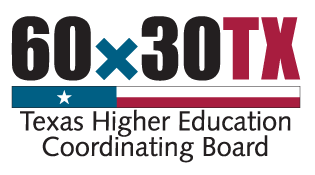High school students have so much on their plate. If they’re pursuing some form of higher education, their last years of high school are likely to be filled with exams, applications, essays and one big question: How am I going to pay for this?
One viable answer, in addition to filing for the Free Application for Federal Student Aid (FAFSA)? Applying for scholarships.
Make sure that all the hard work your students do pays off. By becoming a scholarship expert with Texas OnCourse, you can guide your students toward a debt-free future.
Make sure you check out our popular blog on writing the best scholarship apps, and take note of the six things students should avoid when applying for scholarships:
1) Paying for scholarship assistanceStudents should never pay for assistance to search for a scholarship or to complete a scholarship application.
Pro tip for educators: to ensure that students are not misled by organizations that guarantee scholarship awards for a fee, counselors and advisers can include information about scholarship scams in their advising sessions with students and their families.
2) Failure to meet the application deadlineLate applications are not usually considered. Students should first check the deadline and make sure they understand how and where to send their application. For online applications, they should check the time it must be sent by. For mail-in applications, students should check whether the deadline is a postmark deadline (application needs to be mailed by a certain date) or a “be there” deadline (materials must be mailed in advance to arrive by the deadline). Students should also make sure to send ALL application materials according to the instructions.
3) Failure to follow directions
The directions on a scholarship application are not suggestions. They are the basic requirements that students need to fulfill in order to be considered for a scholarship. Students who do something careless – like emailing their application when they are supposed to mail it or not bothering to format their application correctly – may not get a scholarship (no matter how amazing their essay is).
4) Failure to send in a complete applicationScholarship committees request specific information to verify that students are eligible for the scholarship and to make an informed selection. If students send an incomplete application, the scholarship committee will likely disqualify it. Some scholarship committees will contact students in an effort to complete their application, but students should NEVER assume that this will be the case.
5) Failure to write legiblyStudents can often fill out applications by hand (unless the directions require a typed application), but they cannot win a scholarship if the review committee cannot read their application. Students should use their best handwriting and keep their application in good condition.
6) Failure to proofread their applicationPolished applications have a better chance of winning. Students should remember to ALWAYS have someone proofread their application before sending it. This will help reduce spelling, grammar, and other mistakes.
Finally, be sure to check out our comprehensive blog for educators on scholarship basics, including info on Questbridge, NMSQT, and more.






